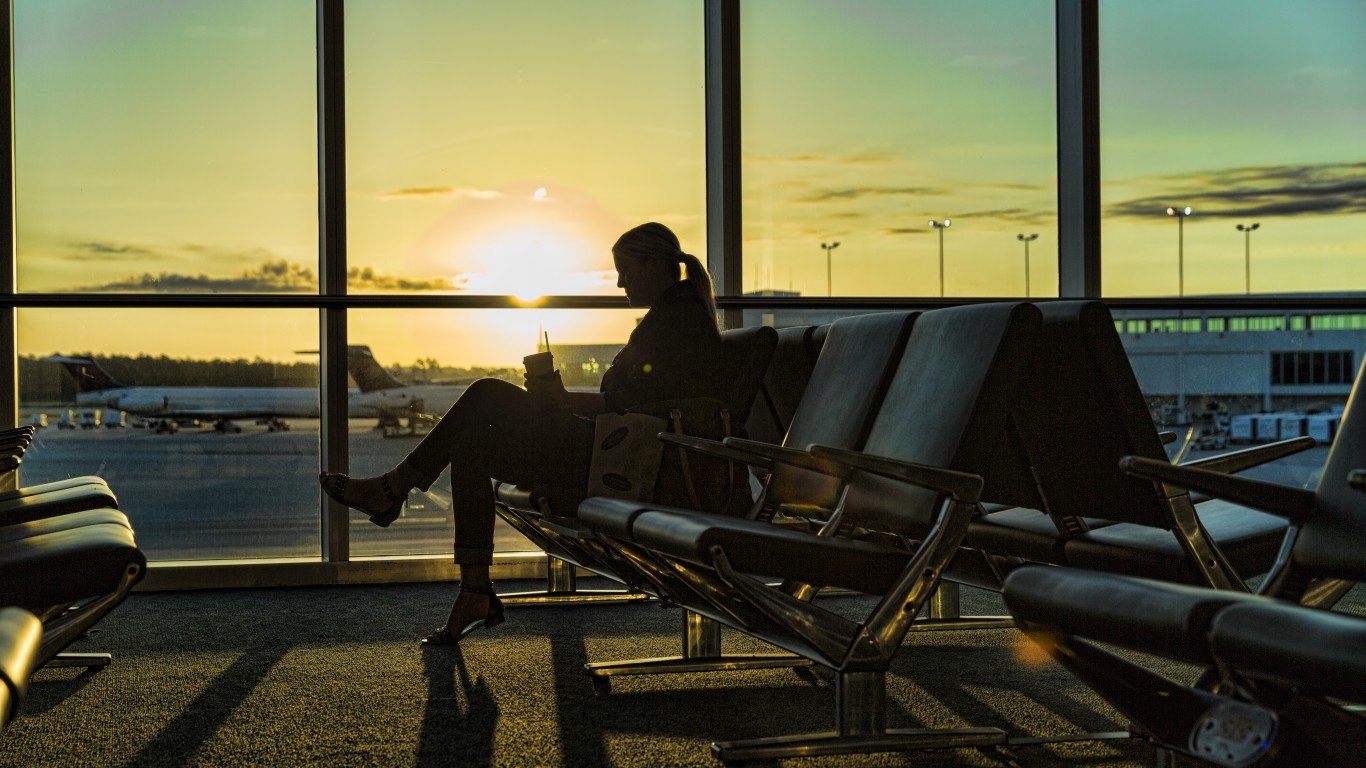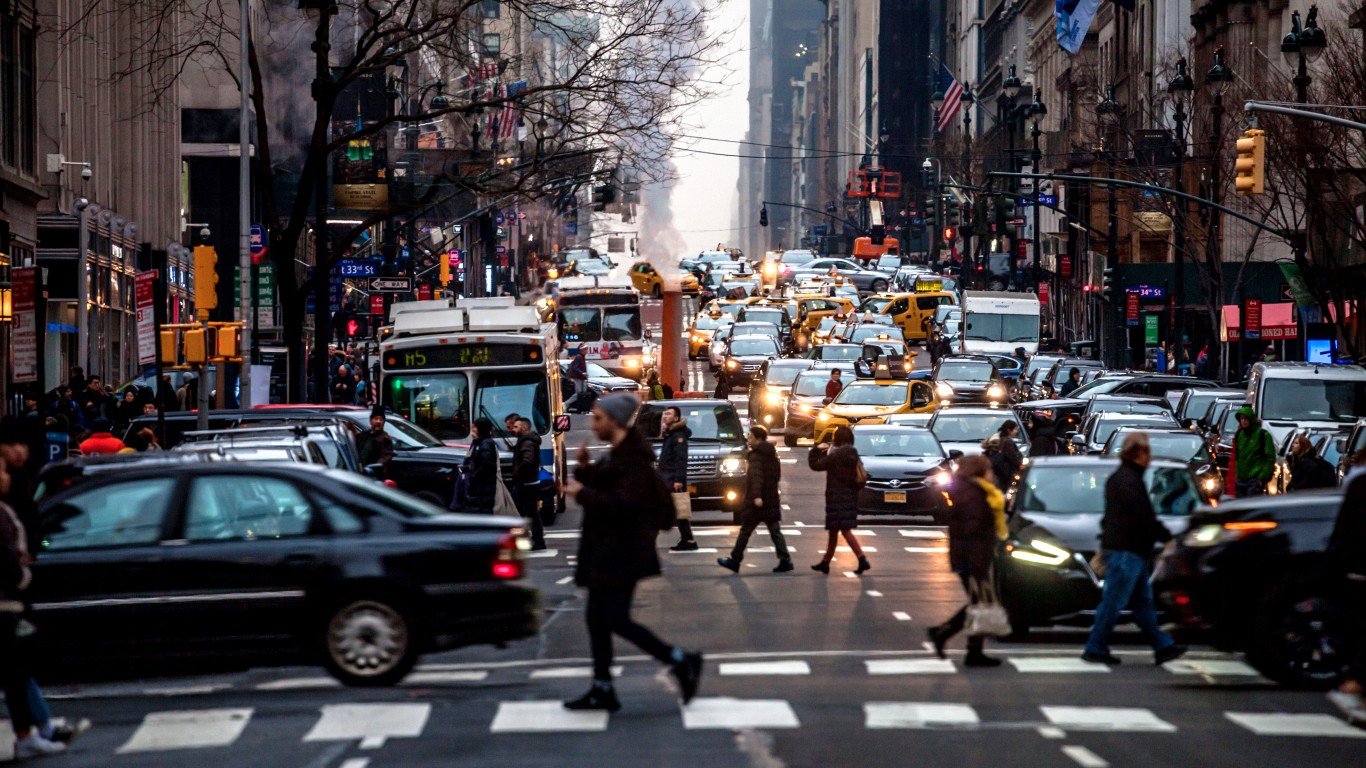

In the first six months of 2019, the 10 largest U.S. airlines and their regional partners had nearly 4 million flights on their schedules. Just 2.4% of those flights (96,000) were canceled. In the same period this year, the airlines scheduled about 2.7 million flights and 10.3% (283,000) were canceled.
No surprises there. The COVID-19 pandemic has decimated the airline industry. Two of the country’s largest carriers, American Airlines Group Inc. (NASDAQ: AAL) and United Airlines Holdings Inc. (NYSE: UAL), said they would have to lay off 32,000 employees if additional federal aid is not forthcoming.
For Americans who either have to travel or choose to, however, the overall decline in traffic has resulted in considerably less overbooking by the airlines. A passenger’s chances of involuntarily being denied boarding (bumped) from a flight in the June quarter of this year were about half what they were in the second quarter of 2019.
Travel website The Vacationer has compiled data from the third quarter of last year through the second quarter of this year and developed a ranked list of your chances of being bumped from a flight on the five major U.S. airlines and their dozen partners. The Vacationer ranked the carriers on both bumped passengers and those who voluntarily missed their flights in exchange for a benefit. In both cases, the rankings are based on denied boardings per 100,000 passengers.
Three of the five most likely to bump passengers with valid tickets are American Airlines and two of its partners, Envoy Air and PSA Airlines. Envoy bumped 12.5 passengers per 100,000 during the period, the most of any carrier. PSA Airlines bumped nine per 100,000, the second-highest total. Republic Airways, which partners with Delta Air Lines Co. (NYSE: DAL) and United, as well as with American, had the third-highest bump rate at 3.8 per 100,000. American ranked fifth with a rate of 3.4 per 100,000.
Alaska Air Group Inc. (NYSE: ALK) ranks ninth and is the second-most likely major carrier to bump passengers. The airline’s bump rate was 0.9 per 100,000. Alaska partner SkyWest had a bump rate of 1.9.
Southwest Airlines Co. Inc. (NYSE: LUV) had a bump rate of 0.7 per 100,000 passengers, tenth-highest among all airlines. JetBlue Airways Corp. (NASDAQ: JBLU) ranked 11th with 0.1 per 100,000, and United Airlines ranked 12th with a bump rate of 0.4 per 100,000.
Hawaiian Holdings Inc. (NYSE: HA) involuntarily denied boarding to just one passenger in 7.9 million in the four quarters of the study, and Delta denied boarding to just three of nearly 108 million.
Looking now at the carriers most likely to offer passengers a benefit if they volunteer to miss their flights, six of the top seven are regional carriers. The highest-ranked major carrier is Delta, at number 6, which offered benefits to 64 (per 100,000) passengers who volunteered to miss their flights. The top-ranked airline was Endeavor Air, a wholly owned subsidiary of Delta, that offered benefits to 157 passengers.
American Airlines offered benefits to 46 passengers for every 100,000 (ninth highest), and Alaska offered benefits to 29 volunteers (11th highest)
Hawaiian offered benefits to just 3.7 passengers per 100,000, the lowest rate among the 17 carriers included in the study. JetBlue (6.3) ranked 16th, Southwest (10.7) ranked 14th and United (24.5) ranked 12th.
Even though COVID-19 has dramatically reduced air travel, airlines will continue to overbook the fewer flights that are available. To avoid being bumped, The Vacationer recommends flying Delta if possible. The major airline to avoid is American. Among all 17 airlines, Frontier is the one to avoid “at all costs.”
Sponsored: Find a Qualified Financial Advisor
Finding a qualified financial advisor doesn’t have to be hard. SmartAsset’s free tool matches you with up to 3 fiduciary financial advisors in your area in 5 minutes. Each advisor has been vetted by SmartAsset and is held to a fiduciary standard to act in your best interests. If you’re ready to be matched with local advisors that can help you achieve your financial goals, get started now.
Thank you for reading! Have some feedback for us?
Contact the 24/7 Wall St. editorial team.
 24/7 Wall St.
24/7 Wall St.


